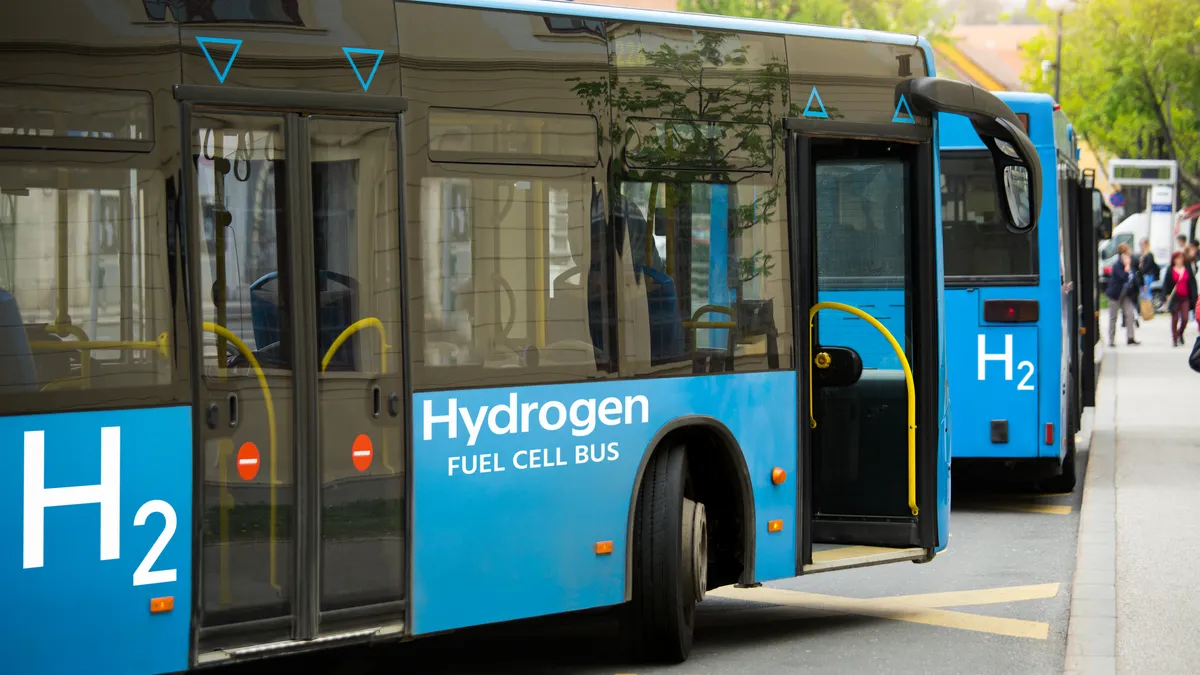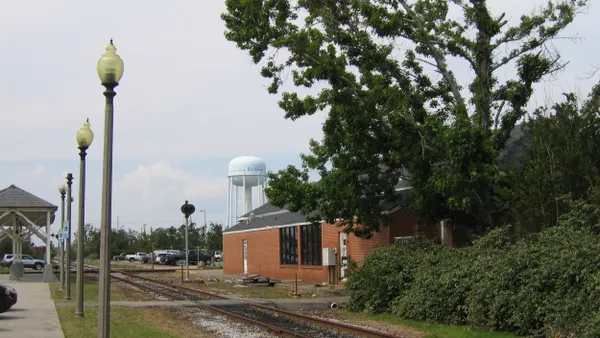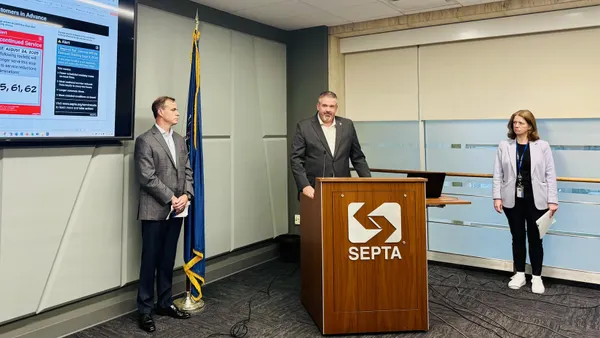Dive Brief:
- As public transit agencies across the U.S. transition to zero-emission bus fleets, they will need workers trained more as technicians than traditional mechanics, the Government Accountability Office said in a Nov. 18 report. These maintenance workers will need to be skilled in electric motor repair, using software and electronic equipment to diagnose error codes, and working safely around high-voltage risks presented by battery and hydrogen fuel cell electric technology.
- But the agencies GAO spoke with don’t consider such training as an immediate priority due to the slow rollout of zero-emission buses, which is largely hindered by high costs and limited supplies of these advanced vehicles.
- GAO also advised that training will be needed for bus operators, dispatchers who must account for battery-charging conditions, route planners and bus depot staff who may work with charging or hydrogen refueling equipment.
Dive Insight:
Zero-emission buses accounted for just 2% of the total bus fleet in use by the nation’s roughly 500 large urban transit agencies in fiscal year 2022. The Federal Transit Administration projects that over three times more zero-emission buses, or 7,700 vehicles, will be operating in U.S. transit agencies by FY 2030.
The GAO interviewed 10 U.S. transit agencies along with 18 representatives from bus manufacturers, transit unions, technical assistance providers and non-governmental organizations. The GAO also spoke with representatives from bus operators in Amsterdam and London, which are further along in their transition to zero-emission bus fleets. The report found that while hiring or training newly skilled personnel was not top of mind, agencies are taking steps to provide specific training as needed and to address the ongoing shortage of frontline workers.
Among the agencies interviewed by GAO, each has taken specific initiatives to help workers adapt to the new, high-tech vehicles. Four agencies asked bus manufacturers to train their mechanics and two sent an experienced mechanic to the bus manufacturer to learn from them and then train fellow mechanics. One agency developed a 198-hour training course specific to their bus fleet while another outsourced its maintenance services to an established provider.
Other resources are available to transit agencies to assist with training. The FTA’s Transit Workforce Center provides technical assistance to transit agencies to help with worker recruiting, training, mentorship and retention. The American Public Transportation Association offers guidance for zero-emission transit bus maintenance training in a 21-page document published last year.











